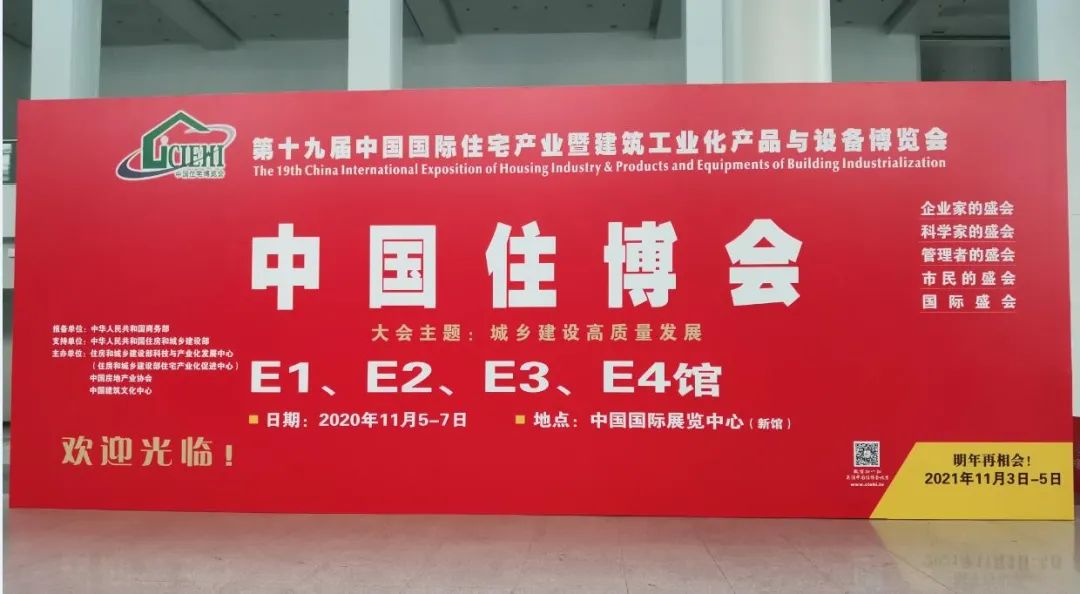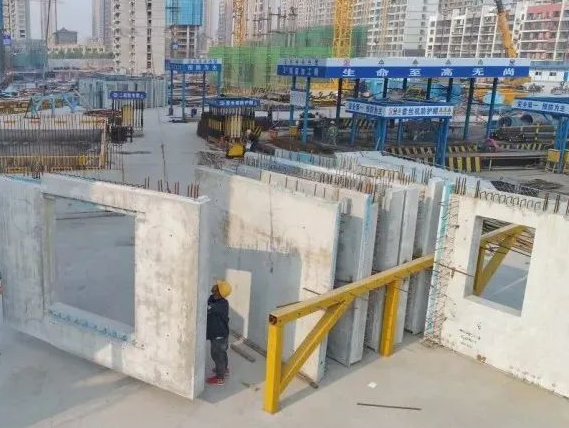The proposal of deputies to the National People’s Congress after 1995 made “precast construction worker” a new occupation
The reply mentioned that in 2021, the Ministry of housing and urban rural development implemented the electronic training certificate for industry practitioners, guided industry associations to hold industry trials of the world skills competition, listed “precast construction workers” as one of 16 new occupations, and is organizing the formulation of national vocational skills standards for precast construction workers.
“Foreign masonry workers have very strict requirements for technology, and the tools they use are much more advanced than our small trowels, and they receive more training.” Zou Bin said that his experience made him have a deeper understanding of the spirit of “great country craftsmen”.
After long-term field research, Zou bin submitted the relevant measures and suggestions on further implementing the transformation of “migrant workers” to workers in the new construction industry in March 2021, and received a reply from the Ministry of housing and urban rural development in July of that year.
Zou bin patiently helped him learn the tools and drawings commonly used in the competition, and shared technical essentials and competition experience.
“Workers have the strongest demand for skill improvement and income security.” Zou bin also used the new media platform to record the demands of migrant workers and complete the upload of public sentiment and the release of policies.
“This is an affirmation and recognition of our industry.” Zou bin, who put forward this proposal, could not hide his excitement in a video interview with reporters from China Youth Daily and China youth.com.
He is well aware of the weight of the status of “deputy to the National People’s Congress”.
The team carried out research on the renovation of the facade of the old community and the repair technology of hollowing, cracks and leakage, and provided professional support from the perspective of quality.
At present, it is applying for the subject.
He hopes to speak for the development of the construction industry and migrant workers from a higher level.
This attitude is not only reflected in the exquisite and gorgeous buildings, but also in their tools and masonry skills.
When he first entered the industry, he was often laughed “silly” by his workmates, because at that time, the measurement and salary were implemented on the construction site.
With years of masonry experience, Zou bin understands the changes of grass-roots construction industry in recent years and the real needs of workers.
In more than 10 proposals submitted to the two sessions of the National People’s Congress, he always pays attention to the migrant workers and the construction industry.
“Craftsman spirit” also quietly sprouted in Zou Bin’s heart at that time.
“I have always believed that the craftsman spirit is that no matter what industry you are engaged in, you should stick to your line of work, love your line of work, be serious, keep improving, accept challenges with full toughness and pursue meticulous with full patience.” Zou bin put forward the “suggestions on further improving the cultivation mechanism of craftsmen, carrying forward the spirit of craftsmen and promoting the construction of a quality power” this year in combination with the work experience of the renewal projects in the two cities and his understanding of the spirit of craftsmen and the power of quality in his work.
“I set myself a small goal: not only to learn from the professionalism and craftsmanship of the older generation of migrant workers, but also to arm myself with innovative thinking.” Zou bin is now the project quality manager of the general contracting company of China Construction Fifth Bureau.
Zou bin proposed that we should vigorously strengthen the cultivation of craftsman talents in the new era, vigorously develop vocational education and type education with the same important status as general education, promote the integration of industry and education and school enterprise cooperation, and better realize the transformation of craftsman talents from “learning” to “using”.
He didn’t choose hard and dirty work.
At the same time, we should also strengthen the guarantee of construction craftsmen, give full support in promotion, skill evaluation, children’s education, medical treatment and other aspects, and enhance the sense of acquisition and belonging of craftsmen..
After graduating from junior high school, he followed his parents to work on the construction site.
He stirred mortar, moved bricks and built walls.
There are more and more skill competitions at all levels, workers have a stronger sense of participation in skill competitions, and have a stronger sense of access to vocational education and medical security.
Zou bin was born in a small mountain village in Xinhua County, Hunan Province.
In his daily work, his professional ability has also been recognized by more colleagues.
While feeling happy for him, Zou bin personally felt that the country paid more and more attention to talent and skill training.
He led the establishment of craftsman talent innovation studio, hoping to use a better platform to solve the problems of quality control for various key engineering projects.
Wu Shenhua won the third prize in the trial and was rated as one of the best craftsmen (masonry workers) in Changsha County.
Construction workers are no longer “migrant workers” who live by selling brute force in the traditional sense, but workers in the new era armed with scientific knowledge.
At the “representative channel” of the national two sessions in 2021, Zou bin shared his growth experience and hoped to encourage workers to improve and change their fate through learning.

He was a migrant worker and won the masonry project award of the 43rd World skills competition with his masonry knife.
The more walls were built, the more wages were paid.
After the policy came out, Wu Shenhua, a worker, found him and intended to participate in the trial of the sixth Hunan workers’ vocational skills competition, but he was not familiar with the competition requirements, so he came to him for help.
However, as long as they were unsightly, he would push down and rebuild them.
In 2014, at the world skills competition, Zou bin learned about the attitude of masonry workers in some advanced countries towards improving handicrafts.
Over the past five years, Zou bin has conducted research on key projects in Hunan, Jiangxi, Beijing, Shanghai and other places.
Zou bin walked into the Great Hall of the people from the construction site and grew from a bricklayer to a deputy to the National People’s Congress.

